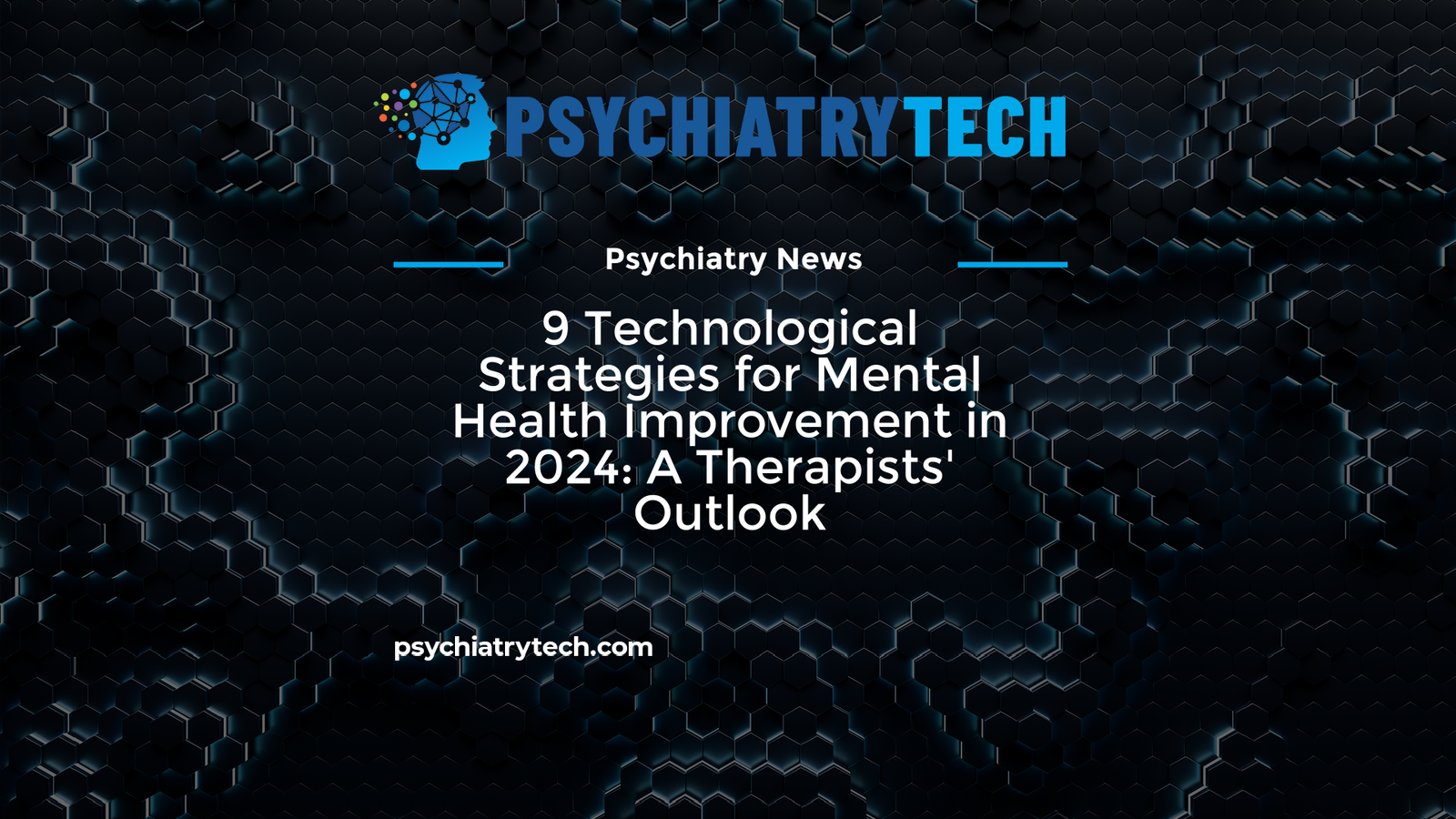9 Technological Strategies for Mental Health Improvement in 2024: A Therapists’ Outlook
As the world continues to evolve, so does the field of mental health. With technological innovations making waves, mental healthcare providers and patients are looking at an exciting future ahead. These emerging innovations could help patients to take charge of their mental wellbeing. This article highlights nine technological strategies that could help to improve mental health in 2024 and beyond.

Discover The World's MOST COMPREHENSIVE Mental Health Assessment Platform
Efficiently assess your patients for 80+ possible conditions with a single dynamic, intuitive mental health assessment. As low as $12 per patient per year.
1. Teletherapy and Chatbots
New technology is now allowing psychotherapy to occur outside of the traditional therapist’s office. Teletherapy over video can be a great solution for those who may not have access to mental health services. Chatbots, too, can provide a cost-effective way for patients to receive support on-demand whenever and wherever they need it.
2. Virtual Reality Exposure Therapy
Virtual Reality (VR) could revolutionize exposure therapy – a type of therapy that helps individuals to overcome traumatic experiences or situations by re-experiencing them. VR can provide a controlled, immersive environment where patients can approach their fears gradually working ways to control their responses.
3. Personalized Mental Health Apps
Patient-generated data can help providers give precise recommendations or even prevent a mental health issue before it begins. Personalized apps can integrate digital biomarkers of mental health and warning signs of behavioral changes. As these mobile apps are easily accessible on smartphones and tablets, the patient could detect any changes, allowing healthcare providers to respond in a timely manner.
4. Wearable Devices for Improved Sleep
Wearable devices that monitor sleep health can be significant in improving treatment plans. These wearables can monitor sleep vitals and detect any irregularities between patterns. This technology can be used to detect sleep disorders early and provide early intervention, improving both mental and physical health significantly.
5. Mindful Meditation Virtual Assistant
Artificial Intelligence-powered virtual assistants may assist with mindfulness goals and deliberate practice. Mindful meditation-based virtual assistants could help individuals adopt and maintain healthy behavioral change, particularly regarding anxiety and depression. By integrating with different platforms, these virtual assistants could provide recommendations based on biometric or environmental data, assuring a highly personalized experience.
6. Mental Health Predictive Analytics
AI could be used to predict potential mental health issues in individuals based on a vast amount of patient data. Predictive analytics can assist clinicians so they may have more time to identify patients who require more care or at-risk for long-term concerns. This technology could also be used as an early screening tool, giving providers time to intervene before concerns worsen.
7. Neurofeedback Therapy
Neurofeedback technology measures brainwave activity and helps to train patients to alter their responses. With this therapy, patients can retrain their brains to comprehend self-awareness and optimize their brainwaves, allowing them to function better in various situations at work or in social scenarios.
8. Robotics
Robots can enhance the provision of mental health services in different settings. For instance, assistive robots could help to promote emotion regulation in behavior therapy and children’s mental health. These robots could interact with patients and provide a safe environment where patients can learn new coping mechanisms without fear of judgment.
9. Social Media
The importance of social media in mental health treatment continues to evolve. Mental health professionals have discovered that patients have found support, coping skills, health information, and self-expression through different social media platforms. Moreover, social media could help to reduce stigma and facilitate mental health care access, making care accessible to many people.
Conclusion
The nine technological strategies focused on in this article are just a few of the many emerging technological innovations in the field of mental health. As we move forward, accessible and more advanced technologies can improve remote care delivery, lead to better diagnostic accuracy, and treatment precision.
However, while these technological advancements are exciting and helpful for people who need mental health services, they are not a substitute for traditional therapy, and not everyone can benefit from them. It’s important to consult a professional therapist when looking up for mental health care as they can provide individualized, evidence-based treatment plans for their patients.
What do you think about these technological advancements in mental health? Let us know in the comments below and share this post with someone who may benefit from reading it.

